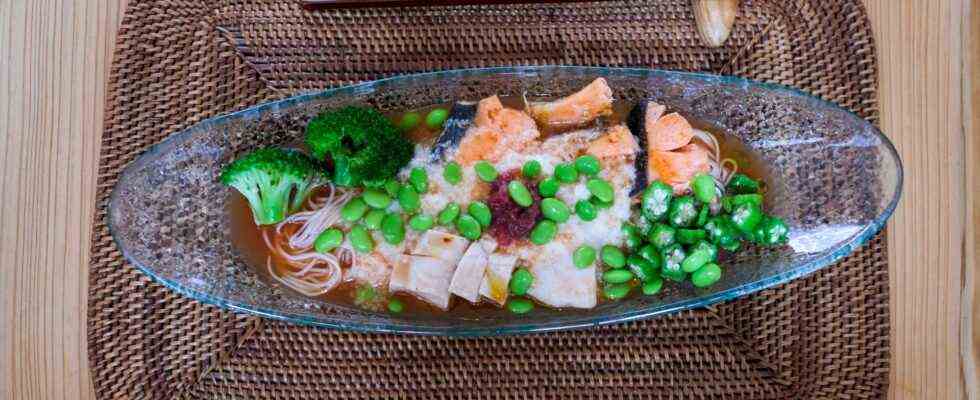Status: 09.10.2021 8:10 a.m.
ANUGA, the world’s largest trade fair for the food industry and the food industry, starts today in Cologne. For the first time since the beginning of the pandemic, it will be present again. The exhibitors focus on sustainability.
There seems to be a great desire in the industry to come together again in person: this year’s ANUGA is well booked with more than 4600 exhibitors from 98 countries. According to the trade fair, around two thirds of the hall space is occupied. In an international comparison – and after the challenging times of the pandemic – that is a very good result, says Oliver Frese, Managing Director of Koelnmesse.
As much normality as possible
The fair took measures to ensure the safety of visitors. 3G rules apply. Entry is via a newly developed access system that allows access in conjunction with a recognized digital receipt for a complete vaccination, testing or recovery. There are only digital tickets.
On the other hand, they tried to ensure as much trade fair normality as possible. The obligatory mouth and nose protection can be removed from standing and sitting tables during discussions, the seating at congresses and forums runs as usual, and even stand parties are possible again subject to certain conditions. At the same time there is a digital offer – for those who cannot come to Cologne this year.
Lead theme “Transform”
The main theme this year is “Transform” – according to trade fair information, it should encompass more than the topic of sustainability alone. “It’s about the entire change in the food industry. The pandemic has made the weaknesses of the global food system even more visible,” said Frese. “We see that the food turnaround is not only taking place in food and beverage production or in global supply and value chains. New areas of tension between different systems are also emerging, such as globalization versus deglobalization or convenience – i.e. partially prepared meals – versus sustainability.”
ANUGA 2021 therefore offers a number of new formats that are intended to make these transformation processes visible, for example organic food or halal food. Numerous alternatives to milk or meat are presented. The focus is also on foods that are suitable for people with intolerance. As part of the New Food Conference at ANUGA, cell-based meat, colloquially laboratory meat, will be presented for the first time. According to trade fair information, plant-based products and alternative protein products are also very much in trend.
Alternatives to meat
Health is being taken very seriously this year. In the case of alternative meat proteins, many products made from pea and lentil proteins are still in vogue. But jackfruit products are also included. When it comes to superfoods, hemp, pomegranate and maca root products are still in vogue, for example as power drinks or fruit bars.
“Clean labeling” is also a big topic. This involves advertising foodstuffs with a reference to the non-use of certain ingredients such as food additives or flavors.
Transparency and naturalness
In addition to the desire for more transparency, consumers’ interest in naturalness and sustainability has also increased. “The trend among ANUGA’s product innovations is primarily products with natural and regional ingredients and with additional health benefits, such as coffee or fitness bars with collagen,” reports the trade fair organizer, Frese. With 2000 exhibitors, almost half specialize in organic offers, regional products and fair trade.
With the growing health and environmental awareness of consumers, the topic of “organic” has gained in importance in recent years. The corona pandemic has intensified the trend towards healthy, regional and natural products. According to a market study by Global Industry Analysts Inc. (GIA), the international organic products market, which was valued at 198.1 billion US dollars in 2020, is expected to reach 495.9 billion US dollars by 2027. An annual growth rate of 14.7 percent is forecast for the fruit and vegetable segment alone.

